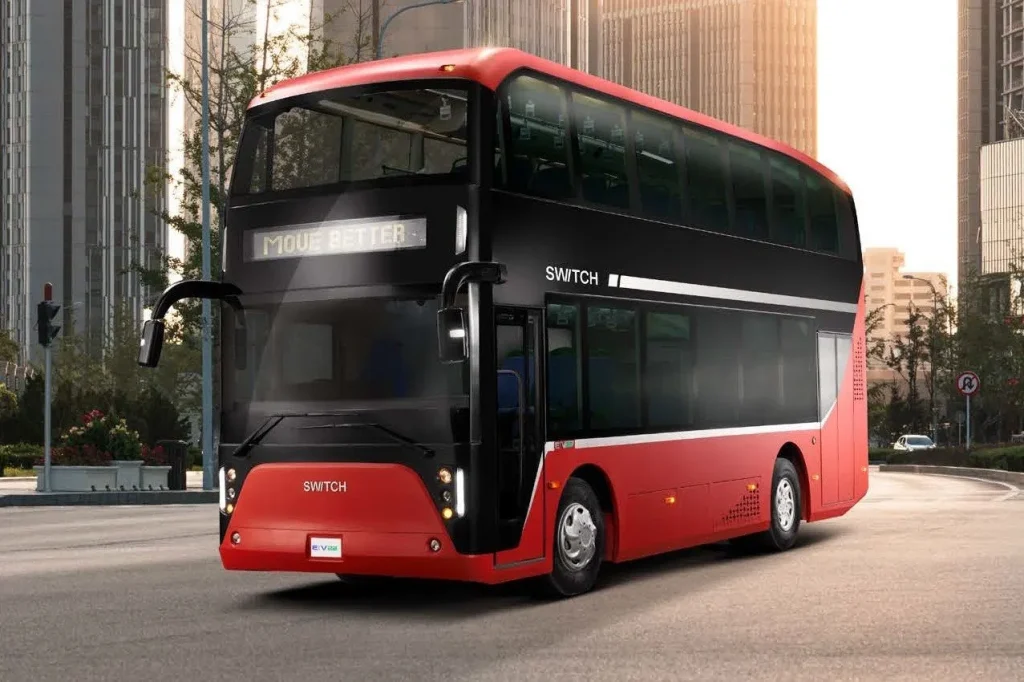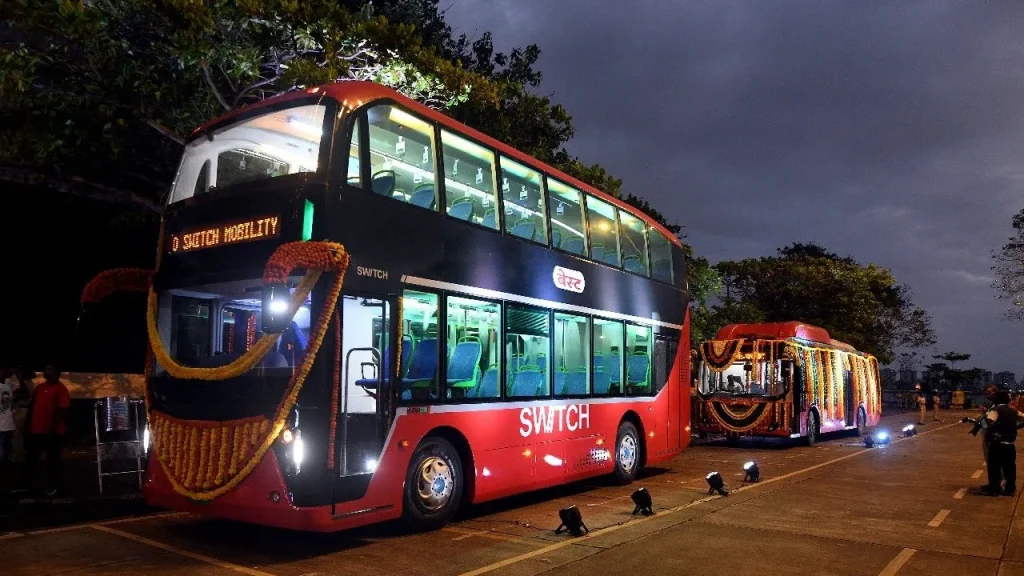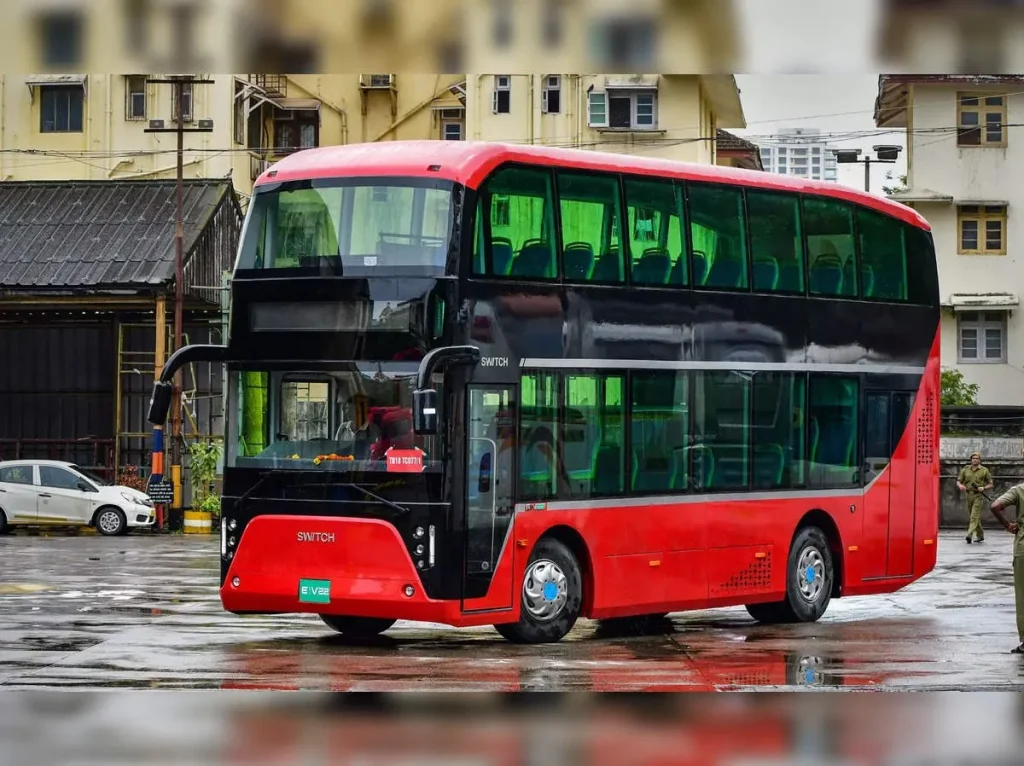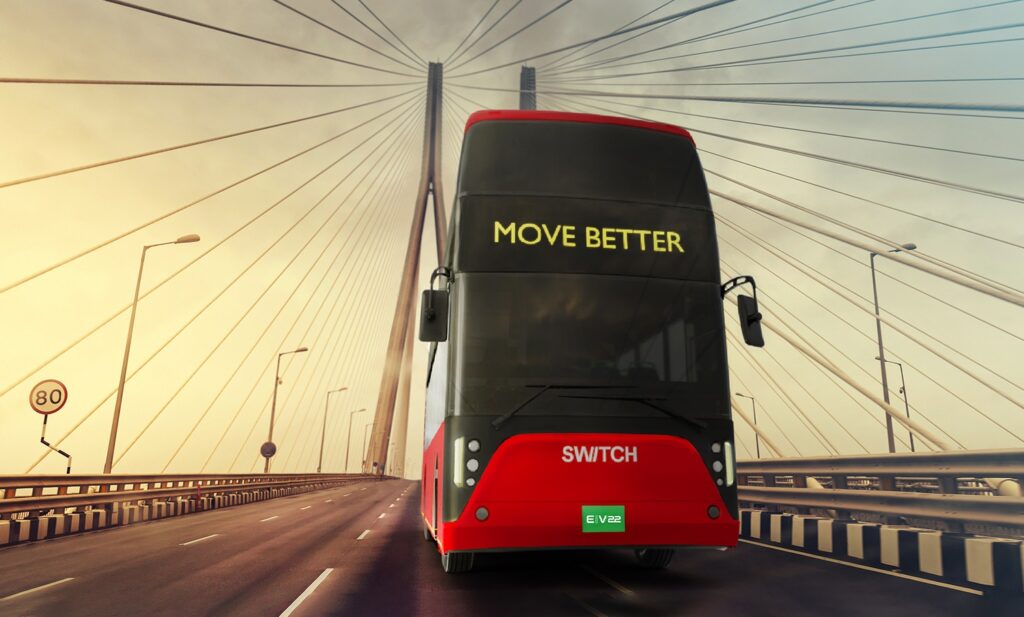As India’s cities face growing challenges of traffic congestion and pollution, double-decker electric buses are emerging as a sustainable solution. These buses are proving to be a game-changer in addressing urban mobility needs while reducing environmental impact. Here’s why they are needed and where they have already made a mark.

The Need for Double-Decker Electric Buses
Indian cities are increasingly struggling with air pollution and overburdened transportation systems. Traditional buses, which run on diesel, contribute to pollution, while also failing to accommodate the rising demand for public transport. Double-decker electric buses provide an ideal solution to these issues. They can carry more passengers than regular buses, reducing the number of vehicles on the road, which in turn helps ease traffic congestion. Additionally, as they run on electricity, they contribute to reducing the carbon footprint, making urban transport cleaner and more sustainable.

These buses represent an important step in creating a more eco-friendly and efficient urban mobility system. Cities like Lucknow, Mumbai, and Bengaluru have already embraced this innovation, setting examples for other regions to follow.
Uttar Pradesh: First Double-Decker Electric Bus in Lucknow
Uttar Pradesh has set a notable example with the launch of its first double-decker electric bus in Lucknow. Chief Minister Yogi Adityanath inaugurated the bus as part of the Aakanksha Haat program, highlighting the state’s commitment to improving public transport and protecting the environment. The bus is designed to alleviate traffic congestion while promoting sustainability.

Key Features:
- Passenger Capacity: 65 passengers
- Discounts for Women: 50% ticket discount and free travel on heritage routes for women on Saturdays
- Safety Measures: Equipped with five CCTV cameras, panic buttons, and real-time tracking systems
- Future Routes: Plans to operate on the Kamta Crossing–Airport route, connecting key areas of the city
The success of this initiative is a significant milestone in Uttar Pradesh’s efforts to adopt eco-friendly transport solutions and could inspire other states to adopt similar measures.
Maharashtra: Double-Decker Electric Buses in Mumbai
Maharashtra was one of the pioneers in launching double-decker electric buses, with Mumbai’s transport authority rolling out these buses to meet the city’s growing demand for public transportation. This initiative not only provides an efficient mode of transport but also addresses the issue of air pollution, which has been a major concern for the city.

Key Features:
- Environmental Impact: Reduced emissions, helping to improve air quality
- Capacity: Similar to other double-decker buses, ensuring more passengers can travel at once
- Routes: These buses are deployed on major routes, connecting popular locations and offering convenient travel options for commuters
The success of double-decker buses in Mumbai is part of Maharashtra’s broader efforts to create a greener, more sustainable transportation network.
Karnataka: Bengaluru’s Initiative with Double-Decker Electric Buses
Bengaluru, the IT hub of India, is also working to modernise its public transport system by introducing double-decker electric buses. The initiative aims to reduce traffic congestion and provide a more eco-friendly solution for the city’s commuters.
Key Features:
- Congestion Reduction: Maximises passenger capacity on high-traffic routes
- Eco-Friendly Transport: Aims to reduce Bengaluru’s carbon footprint through the use of electric buses
- Smart City Integration: Features like digital ticketing and tracking enhance the user experience and improve safety

This initiative in Bengaluru is aligned with the city’s vision to become a smart city, focusing on efficient and sustainable public transportation.
Conclusion
Double-decker electric buses are proving to be a vital component of India’s urban mobility future. With cities like Lucknow, Mumbai, and Bengaluru leading the way, these buses offer a cleaner, more efficient, and innovative solution to the challenges of pollution and traffic congestion. As more states adopt this technology, double-decker electric buses will play an essential role in shaping a greener and smarter transportation ecosystem for India.
